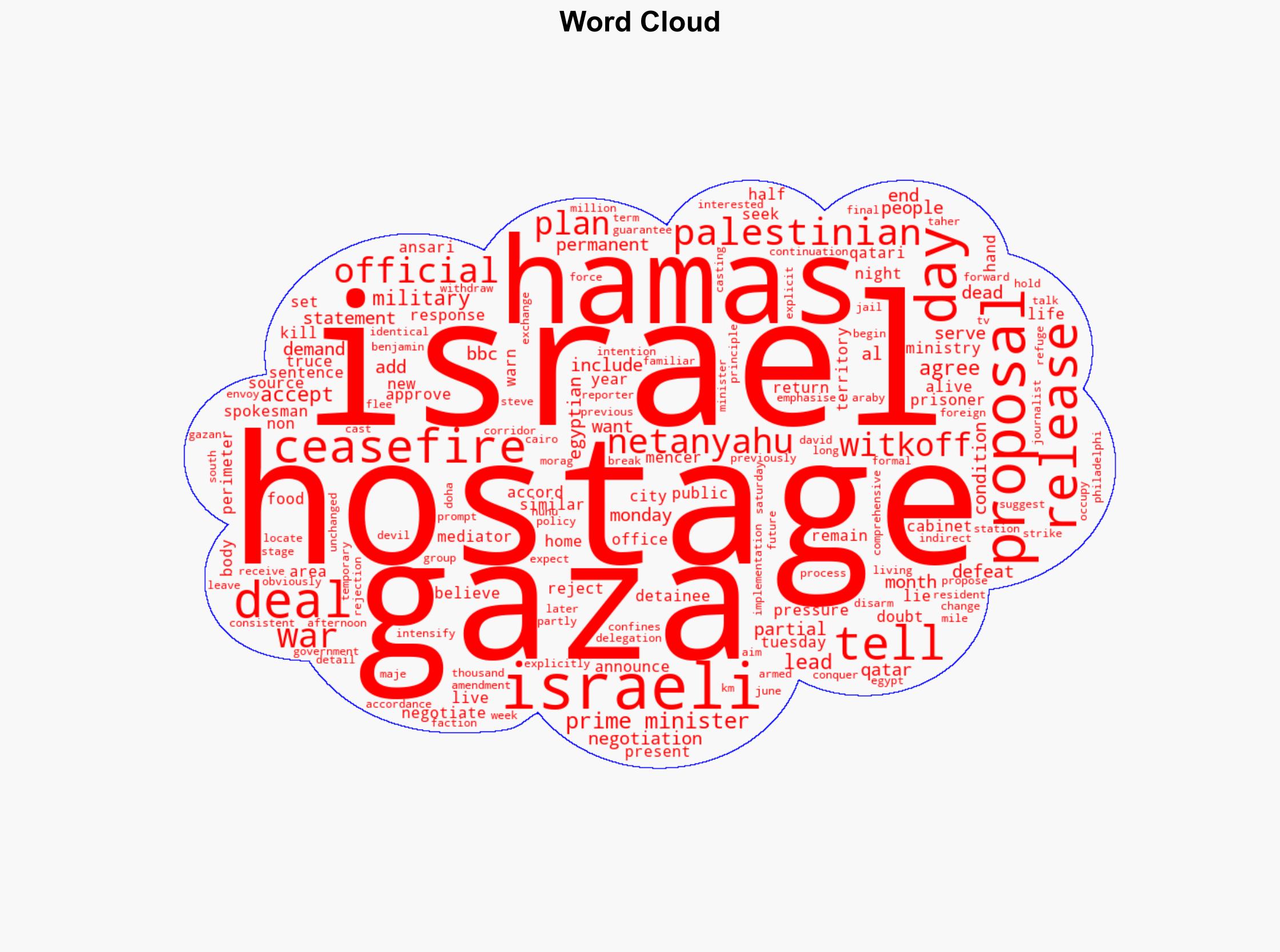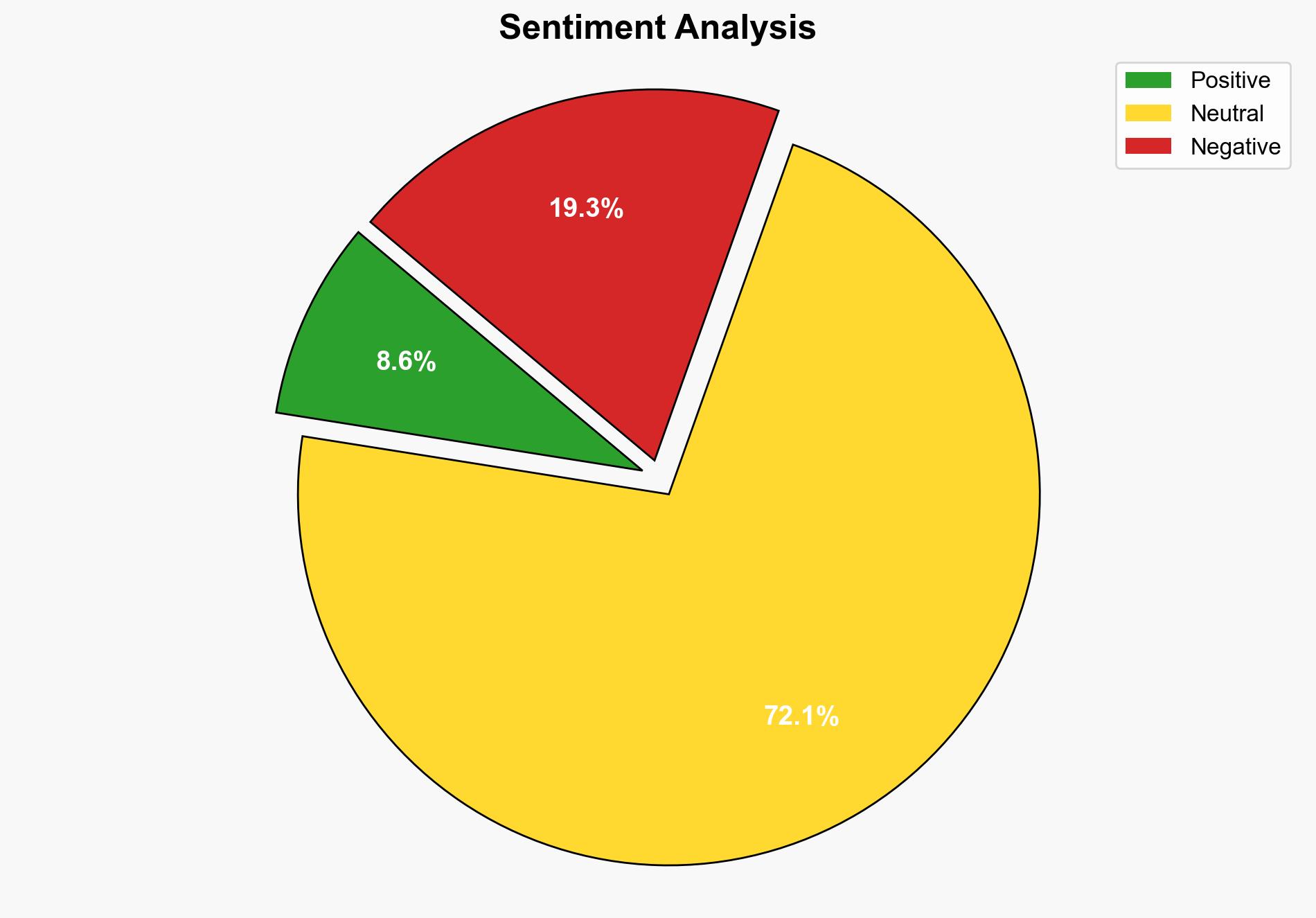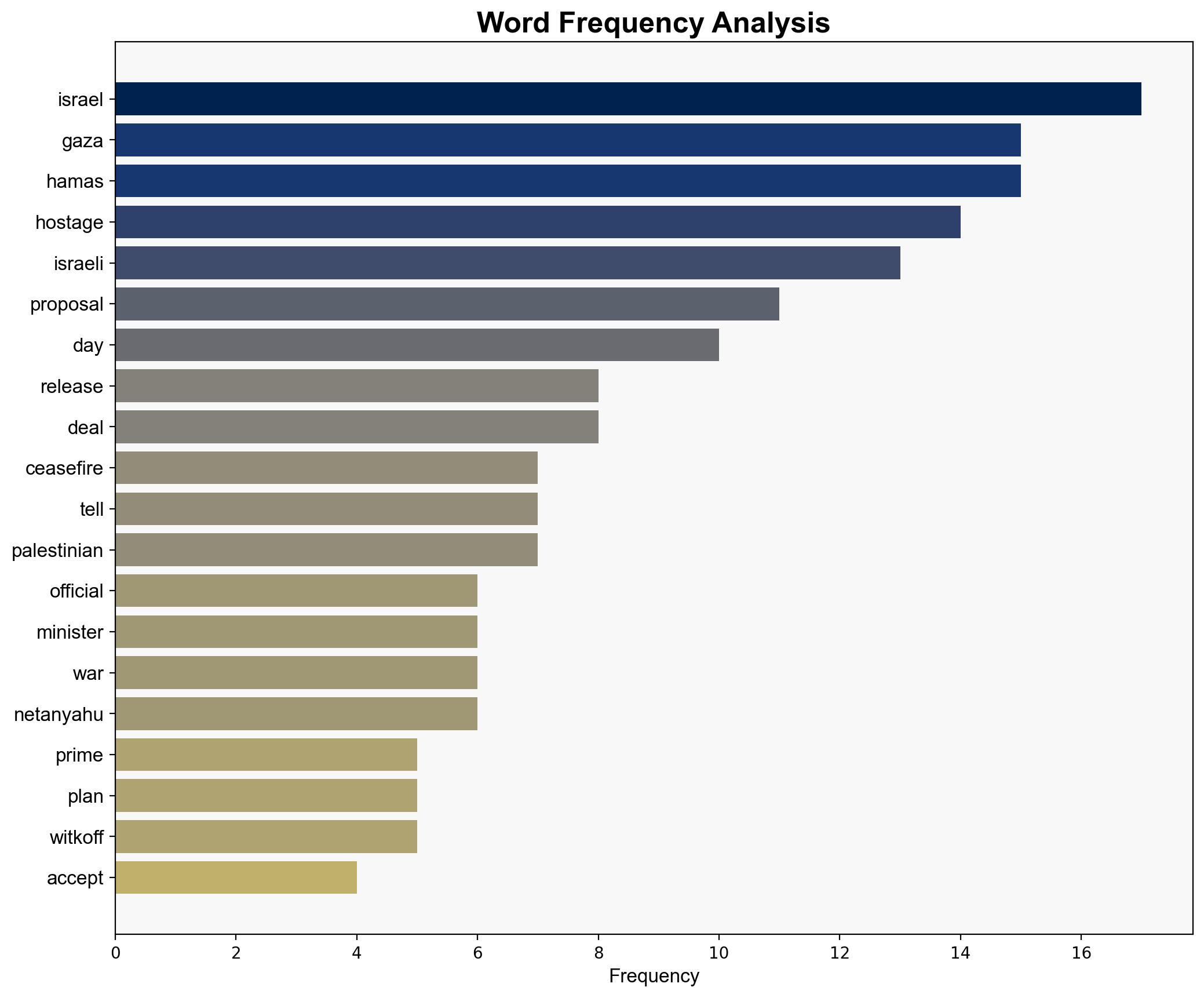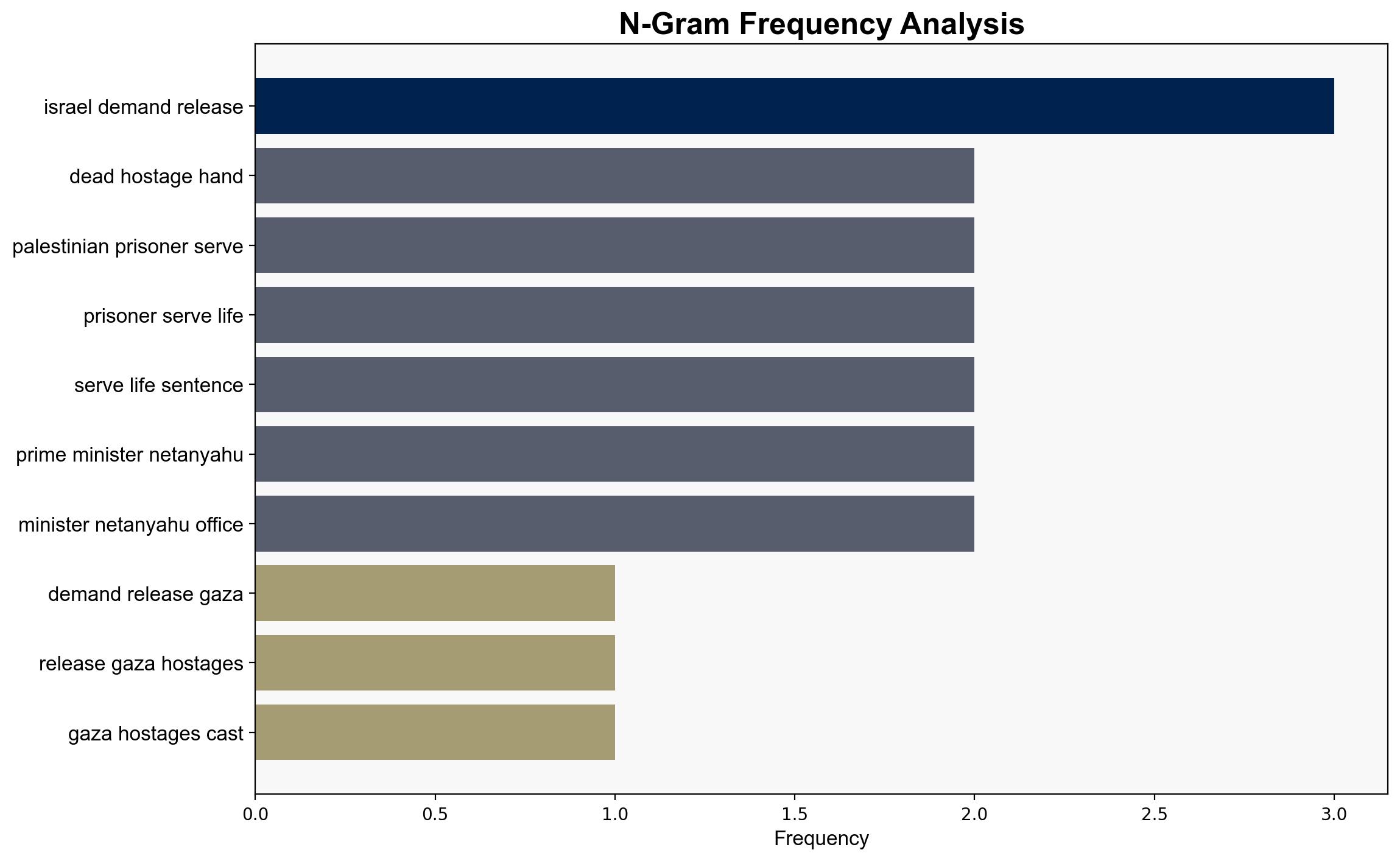Mediators await Israeli response to new Gaza ceasefire proposal – BBC News
Published on: 2025-08-19
Intelligence Report: Mediators await Israeli response to new Gaza ceasefire proposal – BBC News
1. BLUF (Bottom Line Up Front)
The most supported hypothesis is that Israel is unlikely to accept the current ceasefire proposal due to its insistence on the unconditional release of hostages and the disarmament of Hamas. Confidence level: Moderate. Recommended action: Encourage diplomatic engagement to explore alternative solutions that address both parties’ core demands while mitigating potential escalation.
2. Competing Hypotheses
1. **Hypothesis 1**: Israel will reject the ceasefire proposal due to its non-alignment with Israel’s demands for unconditional hostage release and Hamas disarmament. This hypothesis is supported by consistent statements from Israeli officials and the historical context of Israel’s security policy.
2. **Hypothesis 2**: Israel might accept a modified version of the ceasefire proposal if it includes stronger guarantees for the release of hostages and a pathway to demilitarization. This hypothesis considers the possibility of international pressure and the humanitarian crisis influencing Israel’s decision-making.
3. Key Assumptions and Red Flags
– **Assumptions**: It is assumed that Israel’s primary concern is security and the unconditional release of hostages. It is also assumed that Hamas is willing to negotiate under pressure.
– **Red Flags**: The lack of explicit Israeli rejection or acceptance of the proposal suggests potential internal deliberations or strategic ambiguity. The absence of detailed terms in the public domain could indicate hidden complexities.
4. Implications and Strategic Risks
If Israel rejects the proposal, the conflict could escalate, leading to increased regional instability and humanitarian crises. Accepting a modified proposal might stabilize the situation temporarily but could lead to future disputes if underlying issues remain unresolved. The ongoing conflict poses risks to regional economies, potential cyber threats, and geopolitical alliances.
5. Recommendations and Outlook
- Encourage international mediators to facilitate dialogue that addresses both parties’ core concerns, potentially involving third-party security guarantees.
- Scenario Projections:
- Best Case: A mutually agreeable ceasefire is reached, leading to de-escalation and humanitarian relief.
- Worst Case: Rejection of the proposal results in intensified conflict and regional destabilization.
- Most Likely: Prolonged negotiations with intermittent conflict and sporadic ceasefires.
6. Key Individuals and Entities
– Benjamin Netanyahu
– David Mencer
– Taher al Nunu
– Maje al Ansari
7. Thematic Tags
national security threats, regional focus, conflict resolution, hostage negotiations





